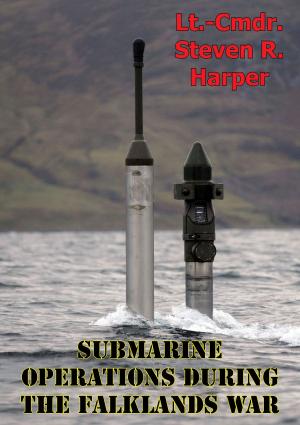The British Experience In Iraq, 2007: A Perspective On The Utility Of Force
Nonfiction, History, Middle East, Persian Gulf War, Military| Author: | Colonel Ian N. A. Thomas | ISBN: | 9781782897804 |
| Publisher: | Tannenberg Publishing | Publication: | August 15, 2014 |
| Imprint: | Tannenberg Publishing | Language: | English |
| Author: | Colonel Ian N. A. Thomas |
| ISBN: | 9781782897804 |
| Publisher: | Tannenberg Publishing |
| Publication: | August 15, 2014 |
| Imprint: | Tannenberg Publishing |
| Language: | English |
Recent years have seen the US, UK and other ISAF and Coalition nations enmeshed in protracted, complex and intense campaigns in Iraq and Afghanistan. Resilient and highly adaptable opponents have operated asymmetrically, and amongst the people, to negate the technological superiority of the West; counterinsurgency (COIN) has been the norm. Progress made has been hard won, consuming considerable resources and testing national will. Despite the achievement of often rapid and spectacular tactical military successes, the desired political dividends have been slower to materialise and scarcely commensurate with the investment of national blood and treasure. This has led some to question the utility of military force and the mood in several Western capitals seems increasingly wary of further stabilisation campaigns abroad. This sense of caution is reinforced by the global economic downturn and its associated fiscal challenges, which have encouraged retrenchment in public spending, especially in defence budgets. It would seem timely, given this context, to reflect upon the utility of force.
This monograph examines the purpose and dominant characteristics of military force and highlights the conditions that must obtain if military success is to be translated into political advantage in the contemporary operating environment. It uses recent British experience in Iraq to illustrate some of the challenges involved. It concludes that despite the complexity and frustrations of Iraq and Afghanistan, armed force retains utility in the contemporary operational environment, as long as certain conditions are met. These are that the missions allocated to the military are appropriate, recognising the limitations of force; are adequately resourced; are properly integrated with other instruments of national power; and are underwritten with the requisite political commitment to sustain them over time.
Recent years have seen the US, UK and other ISAF and Coalition nations enmeshed in protracted, complex and intense campaigns in Iraq and Afghanistan. Resilient and highly adaptable opponents have operated asymmetrically, and amongst the people, to negate the technological superiority of the West; counterinsurgency (COIN) has been the norm. Progress made has been hard won, consuming considerable resources and testing national will. Despite the achievement of often rapid and spectacular tactical military successes, the desired political dividends have been slower to materialise and scarcely commensurate with the investment of national blood and treasure. This has led some to question the utility of military force and the mood in several Western capitals seems increasingly wary of further stabilisation campaigns abroad. This sense of caution is reinforced by the global economic downturn and its associated fiscal challenges, which have encouraged retrenchment in public spending, especially in defence budgets. It would seem timely, given this context, to reflect upon the utility of force.
This monograph examines the purpose and dominant characteristics of military force and highlights the conditions that must obtain if military success is to be translated into political advantage in the contemporary operating environment. It uses recent British experience in Iraq to illustrate some of the challenges involved. It concludes that despite the complexity and frustrations of Iraq and Afghanistan, armed force retains utility in the contemporary operational environment, as long as certain conditions are met. These are that the missions allocated to the military are appropriate, recognising the limitations of force; are adequately resourced; are properly integrated with other instruments of national power; and are underwritten with the requisite political commitment to sustain them over time.

![Cover of the book Letters On Strategy Vol. II [Illustrated Edition] by Colonel Ian N. A. Thomas](https://www.kuoky.com/images/2015/november/300x300/9781786253699-S3oe_300x.jpg)



![Cover of the book The Battle Against The U-Boat In The American Theater [Illustrated Edition] by Colonel Ian N. A. Thomas](https://www.kuoky.com/images/2015/november/300x300/9781786252524-tqEX_300x.jpg)





![Cover of the book Enemy Coast Ahead [Illustrated Edition] by Colonel Ian N. A. Thomas](https://www.kuoky.com/images/2015/november/300x300/9781786257574-db24_300x.jpg)



